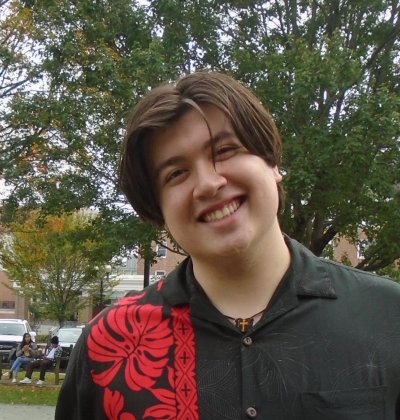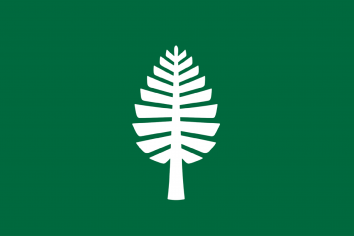
How I Chose My Double Major!
When I first arrived at Dartmouth and started to learn about all of the different departments and programs available, I was overwhelmed. In the best way possible. It was just that, compared to my high school, it felt like I could study anything. Subjects and topics that were really narrow and taught in just one lesson at high school suddenly had whole classes and even departments devoted to them. Disciplines like sociology and linguistics which were these arcane branches to me suddenly became accessible. When I received advice during my Orientation Week to try something new, that was all I needed to try the classes that ended up majorly influencing my academic direction.
I'd always liked languages, but in my freshman fall, I couldn't choose one single language to take a class on. I ended up choosing linguistics because my high school teacher said that it was a field she thought I'd like. When I learned that I could take linguistics classes to get a QDS distributive requirement (distributives, or "distribs," are Dartmouth's general education requirements) in lieu of a math class, I was sold. When browsing classes, I also found a class called Indigistory in the Department of Native American and Indigenous Studies (NAIS). I saw that it only had seven students in it, and thought, 'Hey, now's my chance to be in a class with the smallest student-to-teacher ratio I've ever seen!' Those two classes were super impactful, and even though they weren't a part of the grand plan I'd pondered in the summer between high school and Dartmouth, I was happily swept up in their whirlwind and frankly, I never looked back.
So the two classes that ended up starting me on my majors were Indigistory, or NAIS 30.19, and Introduction to Linguistics (LING 1). The former class was taught by visiting professor Gordon Henry (Ojibwe) and the latter was taught by David Peterson. Both of these classes independently really interested me, and I was taken by both of their individual lessons as the course progressed. The first class was all about digital storytelling in Native and Indigenous communities, and the latter was all about the discipline of linguistics. Because storytelling is all about language, and because you can't talk about American languages without mentioning the hundreds of Native American languages from the Americas, I constantly found myself drawing on both classes! Ultimately, taking both of them at the same time showed me the link between language and identity that ended up making them both my majors. It was a happy accident. Because a term is only ten weeks long, the classes you take in companionship inevitably rub off on each other. In taking lessons from one class and bringing it to the other, I felt like I departed with unique understandings. Thinking about your terms as collective wholes where each of the classes you choose will play off of each other can be a really great way to wade into the water of interdisciplinary work, and I couldn't recommend it more to those of you thinking about how to combine two or more of your academic interests.
I didn't know for sure that I wanted to major in both linguistics and NAIS until I repeated the process in succeeding terms. I am of the mind that your major and minor(s) should sneak up on you. You should take classes that grab your interest, and if the time comes when it's time to pick a major and you notice you're like three classes away from finishing a major with seven terms left, it's the best! In taking more LING and NAIS classes gradually, choosing ones that aligned with my academic interests as they changed and developed with every class, I developed relationships with different faculty and have now performed research with faculty from both departments. On another hand, as an almost senior at the time of my writing this, I'm thinking about the nature of my honors thesis. Having such longstanding relationships with both departments allows me to think about faculty from both as possible advisors, and even just being able to shoot them an email and get feedback and advice has been so, so crucial in my writing process.
For me, finding my major was a byproduct of taking a chance and choosing classes that caught my interest. Deviating from the plans you had pre-college isn't bad, and I'd argue a majority of Dartmouth students do just that. Don't confine yourself to your previous ideas about what you should do and take the time to scope out the College's offerings across the board. Whether you're looking at colleges, trying to choose between them, or already know where you're going, take the time to explore not just what you think you'll study, but also explore what you could study. Aloha a hui hou!















